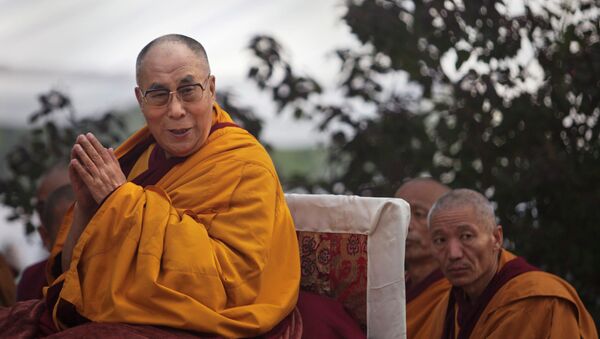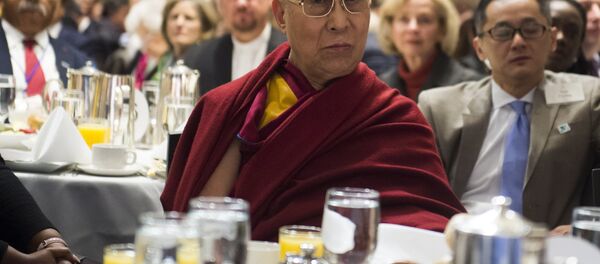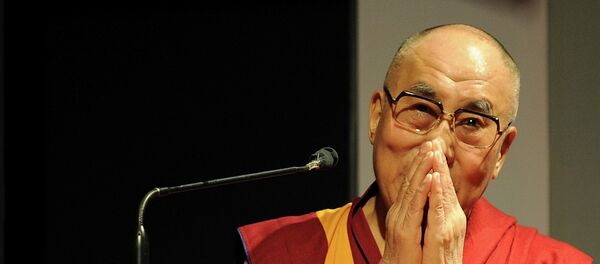Much of the interview was dedicated to discussing the refugee crisis, and the unfolding violence in the Middle East. Towards the end, Myrie asked the Buddhist spiritual leader if his successor could be a woman, to which the Dalai Lama replied in the affirmative.
"One occasion in Paris, one reporter came to see me," the Dalai Lama recalled during the interview. "She asked me, any possibility for female Dalai Lama? I mentioned, why not? The female, biologically, has more potential to show affection and compassion. In today’s troubled world, female should take more importance."
The Dalai Lama then leaned forward to Myrie, and added:
"If it is a female, the face should be very, very attractive."
The comment was met with nervous laughter by Myrie, who seemed so taken aback that he asked the Dalai Lama to repeat himself.
"Otherwise, not much use," the Dalai Lama added.
Still stunned, the BBC reporter asked the Dalai Lama if he was joking, to which he replied "It’s true."
While the interview was uploaded on the BBC website, the news agency did not highlight the controversial comments in the article’s summary, and instead, focused on the Dalai Lama’s input on conflict in the Middle East and the ensuing refugee crisis.
Asked why the BBC had neglected to mention the spiritual leader’s comments on women in the summary, a spokeswoman simply said "if we thought it was big news, we would have done so."
However, the remarks were picked up by feminist websites who were quick to express their shock and disappointment in the Dalai Lama.
"You’d think as someone who’s all about learning and enlightenment, he’d have figured a few things out," read one post on the feminist website Jezebel.com.
"I had hoped for so much more from him – in the end, yet another patriarch," another post said.
The comments do appear to stand in stark contrast to the Dalai Lama’s previous stance on feminism. In 2009, he referred to himself as a "feminist" to an audience while accepting an International Freedom Award, adding "Isn’t that what you call someone who fights for the rights of women?"





